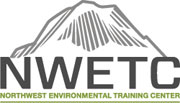1 Quality Management Planning and Implementation
a. Quality Assurance Overview
b. Common Elements of the UFP and EPA QAPP Structures
i. Setting Data Quality Objectives
ii. Regulatory Compliance
iii. Identifying Responsible Personnel
c. QAPP Drivers
i. Phase I Investigations
ii. Remediation and Feasibility: Cost Assessments
iii. Risk Assessment
d. Understanding Data Quality Indicators
i. Precision
ii. Accuracy
iii. Representativeness
iv. Reproducibility
v. Completeness
2 Efficiently Writing the QAPP
a. Collecting Foundation Materials
b. Measurement Performance Criteria
i. Field Quality Control (QC) Samples
ii. Laboratory QC Samples
iii. Method Requirements
iv. Making QA Guidance Work for You
c. Implementation of Drivers into the QAPP
d. The Devil is in the Details
i. Laboratory SOPs, LOQs, and MDLs
ii. Target Quantitation Limits
iii. Controlling the Structural Elements
iv. Coupling the QAPP and the Field Sampling Plan
3 Making the QAPP work for you
a. Organizational Efficiency
b. Communication Pathways
c. Bottle Orders
d. Performing Data Assessments








